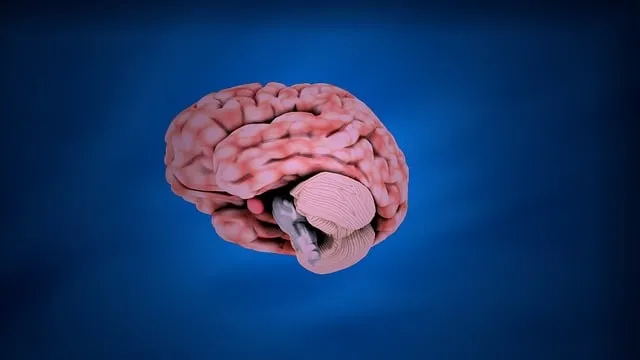The Castle Rock Kaiser Permanente mental health center prioritizes risk assessment and management as a cornerstone of quality care. They employ comprehensive strategies, integrating psychology, sociology, and security studies, to identify and mitigate potential hazards in mental health services. Through coping skills development, conflict resolution techniques, self-care routine promotion, continuous learning, and stigma reduction, the center fosters a supportive environment for both clients and staff. These proactive measures enhance holistic wellness, ensure optimal performance, and drive continuous improvement in patient outcomes.
In the dynamic field of mental healthcare, risk assessment is a cornerstone of patient safety. This comprehensive guide explores the intricacies of risk assessment at Castle Rock Kaiser Permanente, a leading mental health center. We delve into the unique challenges faced by professionals, from managing high-risk patients to navigating complex emotional environments. Through strategic insights, we uncover effective risk management tactics and emphasize continuous improvement as vital components of safe practice within the context of Castle Rock Kaiser Permanente’s comprehensive care model.
- Understanding Risk Assessment in Mental Health Settings
- Key Risks Faced by Professionals at Castle Rock Kaiser Permanente
- Strategies for Effective Risk Management and Mitigation
- Continuous Improvement and Monitoring for Safe Practice
Understanding Risk Assessment in Mental Health Settings

Risk assessment is a critical component of ensuring safe and effective mental health care at facilities like the Castle Rock Kaiser Permanente mental health center. It involves meticulously evaluating potential hazards and vulnerabilities within the therapeutic environment to protect both clients and professionals. This process encompasses identifying risks related to various factors, including but not limited to, individual client characteristics, clinical presentation, treatment methods, facility infrastructure, and organizational policies.
By integrating insights from diverse areas such as psychology, sociology, and security studies, mental health professionals can design comprehensive risk assessment strategies. These strategies aim to mitigate adverse outcomes while fostering a supportive environment that promotes mental illness stigma reduction efforts. Moreover, they inform the development of targeted interventions, like tailored therapy sessions or enhanced security protocols, contributing to the overall success of programs designed for mental wellness podcast series production and mental health education programs design.
Key Risks Faced by Professionals at Castle Rock Kaiser Permanente

Mental health professionals at Castle Rock Kaiser Permanente face unique challenges that demand meticulous risk assessment. One significant risk is exposure to traumatic stories and experiences from patients, which can lead to secondary trauma or burnout if not managed effectively. The demanding nature of their work, coupled with the emotional intensity involved, necessitates robust coping strategies.
Additionally, professionals within this mental health center may encounter workplace conflicts. Effective conflict resolution techniques are vital for maintaining healthy relationships among colleagues and ensuring a supportive environment. Instilling a culture of open communication, empathy, and positive thinking is essential to mitigating these risks. Furthermore, promoting the self-care routine development for better mental health among staff is crucial, enabling them to maintain resilience in the face of these demanding circumstances.
Strategies for Effective Risk Management and Mitigation

Mental health professionals at Castle Rock Kaiser Permanente mental health center understand that managing risks is integral to providing quality care. Effective risk management involves a multi-faceted approach tailored to individual needs. This includes proactive strategies like Coping Skills Development and implementing evidence-based Conflict Resolution Techniques. By equipping clients with robust coping mechanisms, professionals can anticipate and defuse potential triggers before they escalate.
Additionally, fostering a culture of self-care is paramount for maintaining resilience among mental health practitioners. Establishing consistent Self-Care Routine Development for Better Mental Health acts as a buffer against burnout, enabling professionals to maintain optimal performance and emotional well-being. These proactive measures, combined with ongoing risk assessment, create a supportive environment where both clients and providers can thrive, mirroring the holistic approach practiced at Castle Rock Kaiser Permanente mental health center.
Continuous Improvement and Monitoring for Safe Practice

At the Castle Rock Kaiser Permanente mental health center, continuous improvement and monitoring are integral to ensuring safe practice among professionals. This involves a dynamic approach to learning and adaptation, where clinicians regularly reflect on their practices through ongoing professional development programs. By participating in workshops, seminars, and peer discussions, they stay updated with the latest research and best practices in mental health care. Such initiatives foster a culture of safety where learning from mistakes is encouraged, allowing for continuous improvement in patient outcomes.
Moreover, the center promotes self-care strategies like Mental Wellness Journaling Exercise Guidance and Mindfulness Meditation as essential components of safe practice. These practices help professionals manage stress, reduce burnout, and maintain their own mental health, thereby enhancing their ability to provide compassionate and effective care. In tandem with stigma reduction efforts, these initiatives contribute to a holistic approach that benefits both patients and practitioners alike.
Risk assessment is an indispensable tool for maintaining a safe environment at Castle Rock Kaiser Permanente mental health center. By understanding potential risks, identifying key dangers specific to mental health professionals, and implementing effective risk management strategies, the center can foster a supportive and secure atmosphere for both staff and patients. Continuous improvement and monitoring are essential to ensure that safety practices remain robust and up-to-date, ultimately enhancing patient care and outcomes at Castle Rock Kaiser Permanente.






